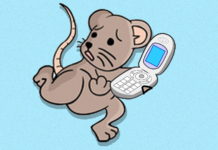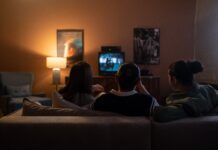

My father-in-law (“Papa”) was grieving, as his wife had recently passed away on their 59th wedding anniversary, plus he was battling cancer. We resolved to take him on a trip. Friends had offered their house on St. Simons Island, Georgia, and we decided to spend two nights in Savannah on the way from Virginia. None of us had been to Savannah in years, and we knew it was one of Papa’s favorite places.
Raised on a farm in rural Georgia, Papa went to Savannah in the early 1940’s to help build war ships, before entering the Army and being sent to the Philippines, where he served his country well.
Papa loved a long car trip, particularly when he could listen to CD’s of the revered Mississippi fertilizer salesman-turned-storyteller, Jerry Clowers. Papa knew every word of every one of Jerry’s stories. His favorite was the one about legendary raccoon hunter John Newsome, who, according to Jerry, could take off his shoes, climb a tree like a monkey, get up in the branches and root out a ‘coon. One day, John’s hunting dogs perceived a ‘coon at the top of a tree, and so John sharpened a big stick, dug in his toenails, and went up the tree out of sight. He reached the ‘coon. Except it wasn’t a ‘coon; it was a lynx, with teeth as sharp as razors. There ensued a ruckus of tree-shaking proportions, resulting, essentially, in a tie, although John wanted Jerry to shoot the lynx. The rest of the story is hilarious, ending in the phrase, “Just shoot up here amongst us. One of us needs some relief!” Papa and I repeated the last line in unison, as we always did, and we laughed for miles.
Then Papa turned serious and started talking about his tour of duty in the Philippines, recounting a story his brother Ben had told him about his time over there. According to Ben, “We were in the jungle and there was this Japanese soldier up in a tree with a rifle, and he had us pinned down. We had been paired up with a unit of Australian soldiers, and they were the craziest bunch I ever saw. One of these guys decided he was fed up with this Japanese fella in the tree. So he pulled out a huge, shiny, sharp knife and grabbed it with his teeth. While we distracted the sniper, the Australian ditched his shoes, managed to sneak up to the tree without being seen, dug his toenails into the bark and commenced to climbing, eventually vanishing from sight. We didn’t hear any thrashing around. The first thing to hit the ground was that Japanese soldier’s rifle. The second thing to hit the ground was the Japanese soldier with his throat cut. The third thing to come down, feet first, was the Australian, with a smile wrapped around the blade of his toad-sticker.”
Papa thought for a moment and offered, “That crazy Australian probably saved my brother’s life. I wish I could have found him one day and thanked him. After that, Ben loved every Australian he ever met.”
For our two nights in Savannah, we chose the Foley House Inn on the edge of Chippewa Square, in part because we understood the building was haunted, and none of us had knowingly stayed in a haunted house before. Built in 1896, the Inn was said to be the residence of the ghost of a wealthy exporter killed for his money at the end of the nineteenth century, and whose skeleton had been sealed inside one of the walls. Legend was that the ghost, named “Wally,” routinely prowled the Inn at night, wearing a top hat, causing strange noises and rushes of air. As we were checking in, the hostess told us that occasionally they noticed that the light fixture, in the shape of a gaslight, at the top of the main stairway, was turned upside down. The staff wrote this off as a “Wally prank.” Each time we went up or down the stairs, we gave special attention to this fixture, but it always looked pretty straight to us.
Papa’s illness had weakened him, and he fell on the sidewalk the first night we were in Savannah. The next day, though limping, he wanted to show us the town as he remembered it from over 60 years earlier; and so he did. We visited the shipyard, drove by the rooming house where he had stayed in the early 40’s, and sat across the street from the site of what had been his favorite movie house – viewing it from a replica of the bench on which Forrest Gump (in Papa’s favorite movie) recounted stories of the Viet Nam War, including his efforts to save his commanding officer, Lt. Dan, and his friend, Bubba.
The second night was when we had planned to go to The Lady & Sons, but it was booked solid. Since Papa was still limping, I dropped him, my wife and daughter off at 45 Bistro. By the time I parked and came inside, the rest of the family was seated. Papa had been wearing one of his WWII veteran’s hats, and it was hanging behind his head on the hat rack.
After a wonderful dinner, and as we were fixing to leave, one of the waiters approached our table. He wasn’t even our waiter. He was most polite, and as he very purposefully walked toward us, he looked directly at Papa, stuck out his hand, and said, “Thank you, sir, for saving my mother’s life.”
Papa looked up at the man and said, “Sir, whatever do you mean?” In a heavy Eastern European accent, the waiter said, “I see your hat. You are a WWII veteran. My mother was in a prison camp in Poland, and you saved her life.” Papa responded, “Sir, I was never in Poland, or anywhere else in Europe. During the war, I was in the Philippines.” The man said, “The GI’s saved my mother’s life. You were a GI. You saved my mother’s life. Thank you, sir, on behalf of my entire family, for saving my mother’s life.” He took both of Papa’s hands, squeezed them and, with moist eyes, walked off. We never got any details.
None of us could talk. Not even Papa, who normally could turn a bronze statue green if it would listen to him long enough. But as we came out of the restaurant, and with his hat perched back on his head, he walked a little more confidently, lost his limp, and glowed all the way back to Foley House.
We didn’t go to bed right away. We sat in the parlor and talked about Savannah, and Forrest Gump, and Lt. Dan, and Bubba, and how “life is like a box of chocolates.” No one mentioned Poland, or the waiter, or his mother. We were still a bit choked up. But Papa had his hat in his lap as we talked. And he kept looking down at it. We all did.
I don’t know about the others, but I was thinking about Ben, and the crazy Australian, and about my father, and several of my uncles, and my stepmother, all of whom were in the European part of the war, and about the waiter’s mother, and thousands like her, who were rescued in a multi-national, heroic effort to win the second “war to end all wars.” For a few minutes, at 45 Bistro in Savannah, Georgia, I had been thoroughly stirred, and still am, by a man I didn’t know, whose name I never got, and about an event that never happened.
We walked upstairs to our rooms. Wally’s gas light was still right side up. Everything was in order.
Copyright 2019 –Gilbert E. Schill, Jr.-All rights reserved
Author Bio- A graduate of the University of Virginia School of Law, he has practiced law in Richmond since 1968, representing colleges and universities throughout the South, as well as teaching law at Washington & Lee. He has served as an editor of several historical publications, as well as co-authoring a collection of boyhood memories, “Not Exactly Rocket Scientists and Other Stories” .
“Much of his writing is “fall-down funny” — yes, I have literally fallen out of a chair listening to one of his tales — this story takes a different turn, showcasing a gentler touch.” -John MacIlroy






Wonderful story! Enjoyed it thoroughly!